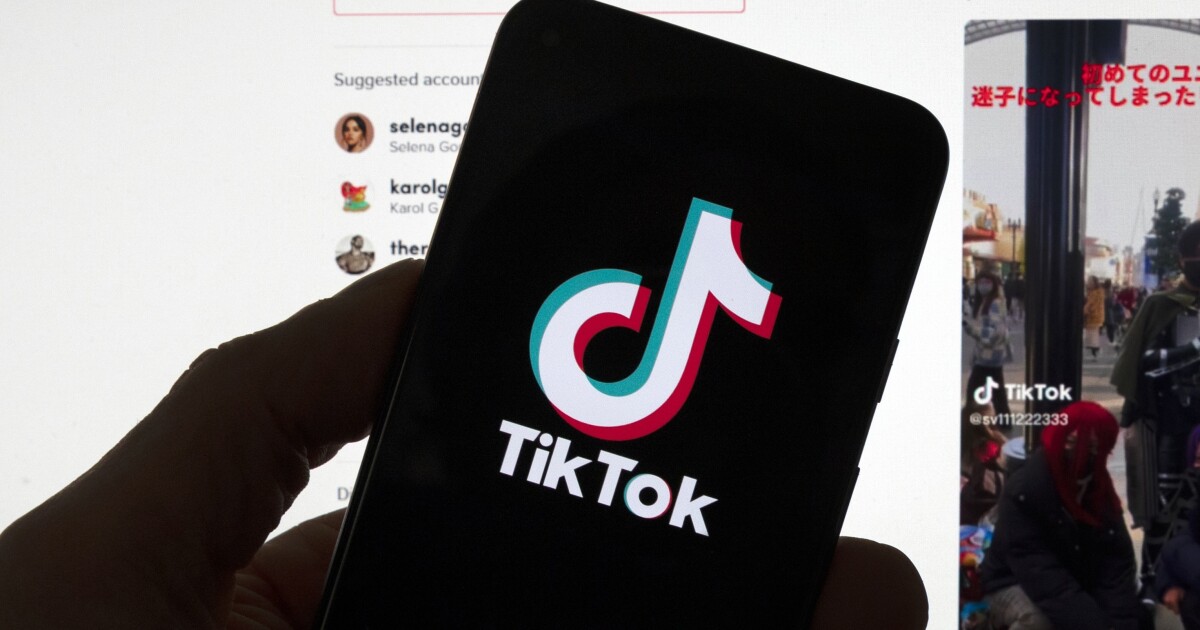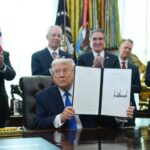

TikTok ‘s parent company includes terms referencing the Uyghur genocide, former President Donald Trump, and China in a list it uses for content regulations, further blurring the lines around how Chinese restrictions on speech are applied to the content on apps owned by the corporation outside of China.
The China-owned ByteDance maintained several lists of words it tracks on its various apps for content moderation purposes. Terms on the list make it appear that they apply to TikTok’s algorithm and content, although the company denies such claims.
CRENSHAW DUBS TIKTOK’ ULTIMATE PSYCHOLOGICAL WARFARE WEAPON,’ SIGNALS SUPPORT FOR ABSOLUTE BAN
While similar lists are often used on other social media platforms to monitor more questionable content such as child pornography or abusive content, lists found in the ByteDance moderation tool include politically relevant “sensitive words” for the company’s team to track, according to
Forbes
.
The lists kept by ByteDance had a variety of titles, such as “Trump Directed Prohibited Words,” “Theming Strategies of Uyghur-Han Couples,” and “TikTok audio sensitive words in Tibet region.” The titles also included references to Chinese President Xi Jinping, Chinese strategic policy, YouTube domestic surveillance, and general government affairs. It also placed restrictions on its “core redline vocabulary,” including references to 6/4, the day of the Tiananmen Square massacre.
The guide to the tool containing the lists was written by Chinese employees from ByteDance and its Beijing subsidiary Jiyun Hudong, which described it as their “global core vocabulary” regarding “common bottom-line sensitive words with high risk” and their “global commonly used thesaurus” involving “fully classified” illegal vocabulary. While some of the lists mentioned Douyin, the Chinese version of the social app, others explicitly mentioned TikTok by name.
The moderation tool also collected data on the “hit rate” of sensitive words, such as how often U.S. users posted about them.
A spokeswoman from TikTok dismissed the lists, saying that they were “significantly outdated or incomplete” and that none of them are currently or ever have been used by TikTok. “TikTok and Douyin are different apps, in different markets, with separate content policies and source code. These apps use separate keyword platforms and keyword lists that are managed by separate teams,” the spokeswoman said.
CLICK HERE TO READ MORE FROM THE WASHINGTON EXAMINER
The use of similar content moderation tools further clarifies the closeness between TikTok and its Chinese counterparts. The TikTok and Douyin apps “share many parts of their source code,” according to a 2021 Citizen Lab report
. Multiple employees have also said the separation between TikTok and ByteDance is “simply cosmetic” and that the company’s internal structure doesn’t actually divide TikTok and Douyin from one another.
The details of TikTok’s content moderation tools were released a month after TikTok CEO Shou Zi Chew appeared before Congress to defend his company from allegations of it being a security threat. Chew dismissed claims that the company had connections to the Chinese government and considered it essential to U.S. culture. There are, however, several ByteDance employees who started out as part of Chinese state media.






